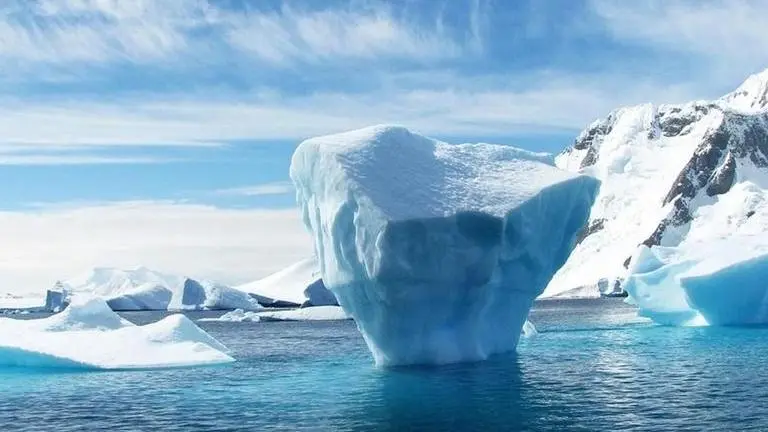Updated 3 September 2021 at 18:03 IST
Climate Change study shows Arctic warming leads to extreme winters in United States
A new study, published in the journal Science, shows that rapid warming of the Arctic region is leading to extreme winter weather in parts of the US.
- World News
- 3 min read

A new study revealed that rapid warming of the Arctic region is leading to extreme winter weather in parts of the United States of America. The study published in the academic journal of the American Association for the advancement of Science found that a circular pattern of winds was also disturbed by the heat in the region, resulting in severe winter weather in a few states in the US. The study further stated the same reason behind the extremely cold wave which was witnessed in Texas in the month of February, which usually experiences humid weather. According to BBC news, the rapid warming in the Arctic region has also caused a rapid shrinkage of summer sea ice and scientists have often shown their concerns about the implications of this global change. It further reported that satellite records are testimony of how global temperatures have had an extreme effect on the Arctic over the past four decades.
'Changes in the Arctic having a significant impact on cold weather'
The researchers found that changes in the Arctic are having a significant impact on cold weather in Nothern part of America as well as East Asia and noted that warming will see more extreme winters in some locations in future. According to Dr Judah Cohen, director of Atmospheric and Environmental Research (AER) and lead author of the study, the increase in temperature difference leads to more disruptions of the polar vortex and when it weakens, it leads to more extreme winter weather, reported BBC news. The researchers further claimed that their findings, which are based on both observations and modelling, also show a physical link between Arctic's climate change, the stretching of the polar vortex and the impacts on the ground.
'Melting of ice in Barents and Kara seas led to increased snowfall over Siberia'
The study also shows that increased snowfall over Siberia is the result of the melting of ice in the Barents and Kara seas. It further shows that heat ultimately causes a stretching of the polar vortex which led to extremely cold weather in the US. Since satellite observations began in 1979, there has been an increase in these stretching events, claimed researchers. They also believe that their work would also help in predicting the onset of extreme cold winter weather. Besides, the research team also believes that their findings will help people understand global warming in a better way and remove the misunderstanding that climate change does not lead to colder winters, reported BBC news.
Image Credits: Pixabay/Representative
Published By : Anurag Roushan
Published On: 3 September 2021 at 18:03 IST
